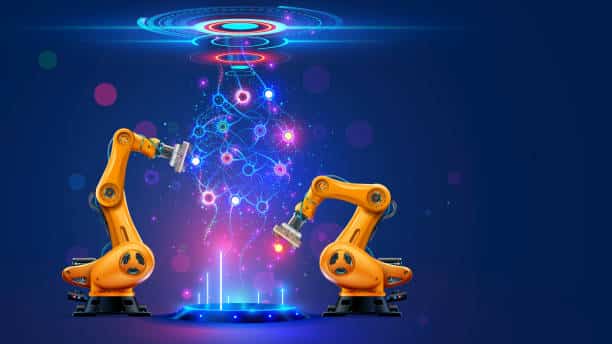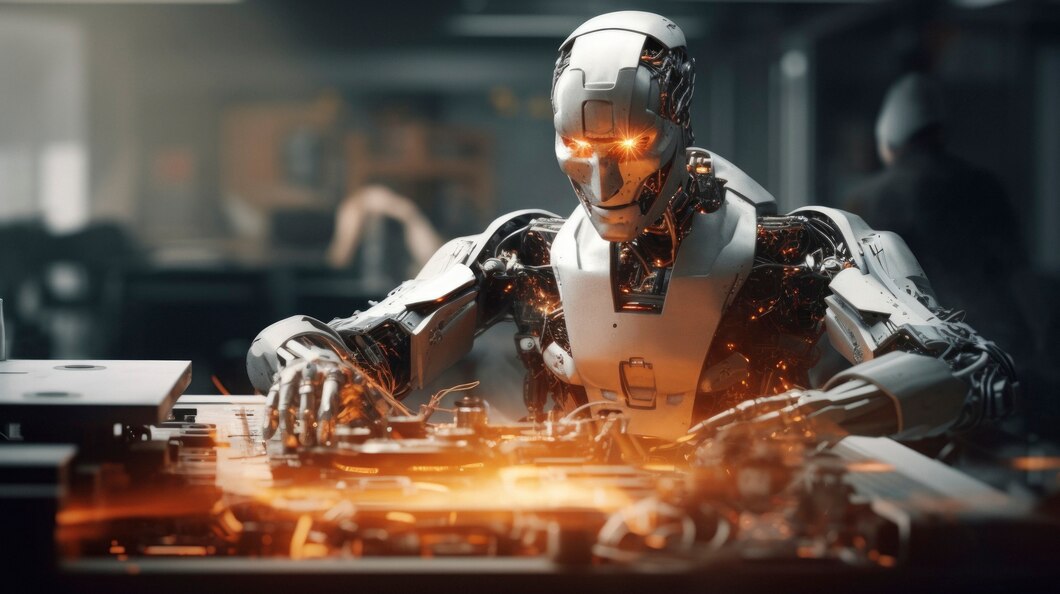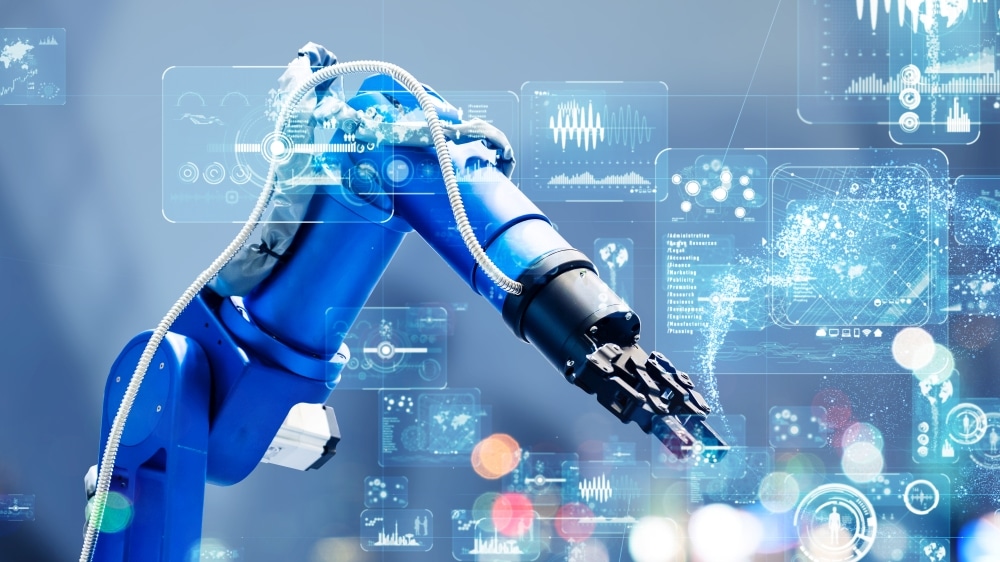Industrial Robots
In today’s competitive and rapidly evolving manufacturing environment, companies are continuously seeking ways to optimize productivity, reduce costs, and improve product quality. One of the most transformative innovations in this sector is the advent of industrial robots. These machines are designed to automate a wide range of repetitive tasks, from assembly and welding to material handling and packaging. As industries strive to stay ahead of the curve, industrial robots for sale have become a highly sought-after solution for businesses looking to integrate cutting-edge technology into their operations.
This article explores the different types of industrial robots, the benefits of using these machines, how to find the right robot for your business, and answers to some frequently asked questions about purchasing industrial robots. We’ll also discuss the latest trends in robotics and what the future holds for these intelligent machines in the manufacturing sector.
Key Takeaways
Boosted Productivity and Efficiency: Industrial robots can operate 24/7 without fatigue, dramatically increasing production speed and efficiency. This leads to shorter cycle times, higher throughput, and the ability to meet growing demand.
Cost-Effective in the Long Run: While the initial investment in industrial robots can be high, the long-term cost savings from reduced labor, minimized errors, and increased operational efficiency make robots a cost-effective solution for manufacturers.
Enhanced Precision and Quality: Robots deliver unparalleled precision, reducing human error and ensuring consistent, high-quality outputs. This is critical for industries where tight tolerances and repeatability are essential.
Flexibility and Scalability: Modern industrial robots are highly versatile and can be easily reprogrammed or re-tasked to perform different tasks. This adaptability allows manufacturers to scale production up or down without needing to overhaul their entire system.
Improved Worker Safety: By automating dangerous or physically demanding tasks, robots can reduce workplace injuries and create a safer environment for employees. This helps businesses comply with safety regulations and fosters a more secure workplace.
Collaborative Robotics for Human-Robot Interaction: Collaborative robots are designed to work alongside human workers, making it easier for businesses to integrate automation into existing workflows without disrupting current processes. are easy to program, safe to operate around humans, and offer a more seamless collaboration between man and machine
Diverse Options: Industrial robots come in various types, including articulated robots, SCARA robots, and cobots, catering to a wide range of applications.
Applications Across Industries: From automotive to healthcare, industrial robots play a critical role in enhancing productivity.
Long-Term Benefits: While the upfront cost may be high, the return on investment includes improved efficiency, quality, and safety.
What Are Industrial Robots?
Industrial robots are programmable machines used to perform various manufacturing tasks with high precision, speed, and reliability. Unlike traditional machinery, industrial robots are capable of working autonomously, reducing the need for human intervention. This allows for 24/7 operation, making them ideal for high-demand environments.
Typically, these robots are designed to perform tasks that are repetitive, dangerous, or require high accuracy, such as:
- Welding
- Painting
- Assembly
- Material Handling
- Packaging and Palletizing
- Inspection and Quality Control
Types of Industrial Robots
Industrial robots come in various shapes and sizes, each suited for different applications and environments. The most common types of industrial robots include:
- Articulated Robots: These robots have a robotic arm with multiple joints, allowing for high flexibility and movement. They are widely used in welding, painting, and assembly lines.
- SCARA Robots: Standing for Selective Compliance Assembly Robot Arm, these robots are designed for high-precision tasks such as assembly, material handling, and packaging. SCARA robots are often used in the electronics and automotive industries.
- Cartesian Robots: Also known as gantry robots, these robots operate along three linear axes (X, Y, Z), offering precise movements for tasks such as material handling, CNC machine loading, and pick-and-place operations.
- Delta Robots: These robots have a parallel arm configuration and are often used for high-speed pick-and-place tasks. They are typically found in the food, pharmaceuticals, and electronics industries.
- Collaborative Robots : Unlike traditional industrial robots, cobots are designed to work alongside human operators in a shared workspace. They are safe, easy to program, and are often used for small to medium-sized tasks in industries like electronics, packaging, and assembly.
Why Buy Industrial Robots?
Purchasing industrial robots offers numerous benefits for manufacturers and businesses. Let’s take a closer look at the main advantages that industrial robots bring to the table.
1. Increased Productivity

Industrial robots are designed to operate at high speeds, working continuously without fatigue or downtime. They can significantly boost production rates, leading to shorter cycle times and increased throughput. For manufacturers, this means they can produce more units in less time, improving overall productivity.
2. Improved Product Quality
One of the key benefits of industrial robots is their ability to perform tasks with high precision and consistency. Robots eliminate the risk of human error, ensuring that every product is made to the same high standard. This is particularly important in industries such as automotive manufacturing and electronics assembly, where tolerances are tight and precision is critical.
3. Cost Reduction
Although the initial investment in industrial robots can be significant, the long-term cost savings are considerable. Robots reduce the need for manual labor, cutting down on wages and associated costs like benefits and insurance. Moreover, robots improve efficiency, reduce material waste, and minimize downtime, all of which contribute to lowering overall operational costs.
4. Safety and Risk Reduction
Industrial robots are ideal for performing hazardous tasks, such as welding, painting, and heavy lifting, which can pose significant risks to human workers. By automating these dangerous activities, companies can significantly improve workplace safety and reduce the risk of injuries or accidents.
5. Flexibility
Modern industrial robots are highly versatile. With the right programming and configuration, robots can be re-tasked to perform different functions or adapt to new production requirements. This flexibility is especially valuable for industries that need to produce a wide range of products in varying quantities.
6. Scalability
As demand increases, businesses can easily scale up production by purchasing additional robots or upgrading existing ones. Robots can be integrated into existing production lines, allowing for seamless scalability without requiring major structural changes.
7. Improved Worker Satisfaction
While some may fear that robots will replace human workers, the reality is that industrial robots can actually improve worker satisfaction. By taking over monotonous, repetitive, and physically demanding tasks, robots allow human workers to focus on more complex, creative, and value-added activities. This shift leads to a more engaged and skilled workforce.
Read Also :- https://orbitittech.com/what-are-the-best-it-security-practices-for-2025/
Factors to Consider When Buying Industrial Robots
Before purchasing an industrial robot, there are several important factors to consider:
1. Application and Task Requirements

The first step in selecting an industrial robot is to define the specific tasks it will perform. Different types of robots are designed for different applications, so it’s crucial to choose a robot that aligns with the needs of your manufacturing process.
2. Robot Payload and Reach
Each robot has a maximum payload (weight capacity) and a defined reach (distance it can extend its arm). Ensure the robot you choose can handle the weight of the materials or components it will be working with and has the reach necessary to perform the task efficiently.
3. Space and Installation
Consider the available space on your shop floor. Some robots require more space due to their size and range of motion, while others are compact and can be installed in tight spaces. Be sure to account for the layout of your production area when planning the installation.
4. Integration with Existing Systems
Industrial robots often need to work alongside other machines, such as conveyors, CNC machines, and inspection systems. It’s important to ensure that the robot can easily integrate with your existing equipment, both from a mechanical and software standpoint.
5. Ease of Use and Programming
Modern industrial robots are becoming increasingly user-friendly, with many offering intuitive programming interfaces and easy-to-follow instructions. When selecting a robot, consider how easy it will be for your team to program, operate, and troubleshoot the machine.
6. Maintenance and Support
Just like any other machinery, industrial robots require regular maintenance to keep them running smoothly. Look for a robot supplier that offers comprehensive support, including training, maintenance services, and access to replacement parts.
7. Total Cost of Ownership
While the upfront cost of purchasing an industrial robot is an important consideration, it’s equally crucial to evaluate the total cost of ownership. This includes maintenance, downtime, energy consumption, and the potential for future upgrades or replacements.
Where to Buy Industrial Robots
Industrial robots can be purchased from various suppliers, ranging from large, established manufacturers to smaller, specialized robotics firms. Some of the most well-known industrial robot manufacturers include:
- ABB Robotics
- Fanuc
- KUKA Robotics
- Yaskawa Electric
- Universal Robots
- Stäubli Robotics
Many of these companies offer both new and refurbished robots for sale, giving businesses the flexibility to choose based on their budget and requirements. Additionally, many suppliers offer leasing options, which can make the acquisition of industrial robots more affordable.
Also Read : https://orbitittech.com/what-are-the-best-it-security-practices-for-2025/
Conclusion
Industrial robots for sale are transforming the way manufacturers approach production. From improving efficiency and quality to enhancing safety and flexibility, the benefits of incorporating robots into the manufacturing process are clear. As businesses look to stay competitive in an increasingly automated world, industrial robots offer a powerful tool for achieving these goals.
The growing use of industrial robots in manufacturing signifies a monumental shift towards greater automation and efficiency. By offering enhanced productivity, cost savings, flexibility, and safety, industrial robots are helping businesses of all sizes stay competitive in the global marketplace. Whether you’re looking to improve quality control, reduce operational costs, or streamline your production process, investing in industrial robots can offer significant returns.
Industrial robots are a game-changer for the manufacturing industry, offering unparalleled efficiency, precision, and cost savings. As technology continues to advance, these robots are becoming more accessible to businesses of all sizes. However, selecting the right robot requires careful consideration of application needs, budget, and long-term goals.
7 FAQs
About Buying Industrial Robots
How much does an industrial robot cost? The cost of an industrial robot can range from $25,000 to $100,000 or more, depending on the type, size, and features. Custom-built robots or those with advanced capabilities may cost even more.
Can I purchase a used industrial robot? Yes, many companies offer used or refurbished robots at a lower cost than new ones. Used robots can be an excellent option for businesses looking to save money, but they may come with limited warranties and require more frequent maintenance.
How do I know which type of robot is right for my application? The best robot for your application depends on factors like the complexity of the task, the weight of the materials being handled, and the available space. Consult with a robotics expert or supplier to ensure you choose the right model for your needs.
Are industrial robots easy to program? Many modern industrial robots come with user-friendly programming interfaces, allowing even those with limited technical expertise to operate them. However, some robots may require specialized programming knowledge.
What industries use industrial robots? Industrial robots are used across a wide range of industries, including automotive manufacturing, electronics assembly, food processing, pharmaceuticals, and consumer goods.




